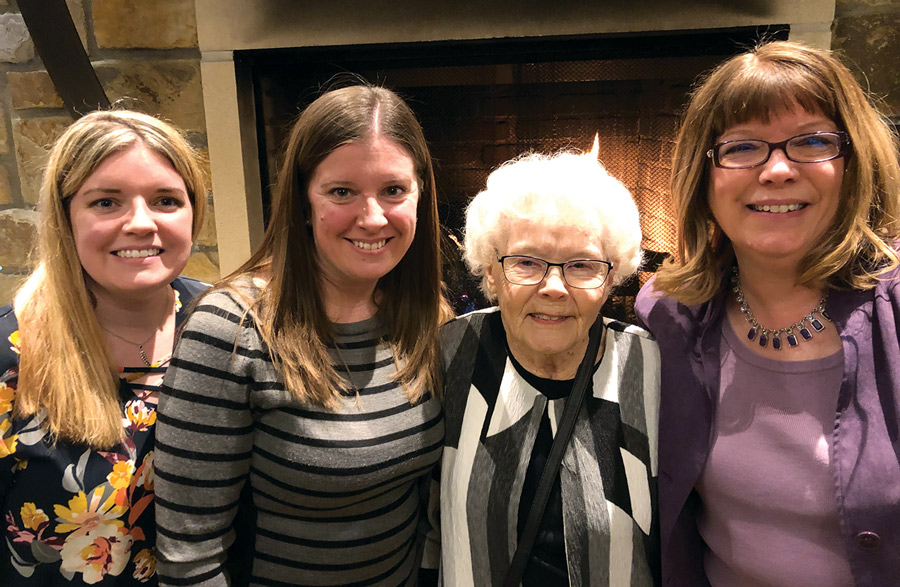The View From Here

My earliest sustained memories are of the impact the Great Depression had on our family: My Princeton-grad father was unemployed for seven years! My teens were a series of changing living arrangements, new schools, and overhanging clouds of insecurity, until the time came to attend college, without one cent of financial preparation. My four years were supported entirely by private loans and scholarships, the latter dependent on maintaining a B average — stressful for someone barely good enough but not brilliant. College life was hugely enriching, developing my self-identity, providing broad intellectual options, and, most memorably, acquiring incomparably rich friendships. Our Worth L Section’s round-robin letter had a 25-year postgrad life, and some of those connections have lasted to this day.
Halfway through our four years, we were at war, triggered by the attack of Pearl Harbor. Our male classmates were immediately faced with accelerated schedules through the summers, as well as the philosophical decision on conscientious objection to military service. It was a period of life-changing and mind-changing challenges that shaped our individual experiences of the war years.
The long view back for me recognizes the historic events like Pearl Harbor, the moon landing, and 9/11, as well as the movements over time confronting racism. Much was gained by the activism of the ’60s, but so much more is still demanded. Current political paralysis stymies progress on so many fronts that it is difficult to find constructive optimism. We will not see what evolves but must have hope that divisiveness will give way to a more cooperative engagement in the world of our children and grandchildren.
An English literature major at Swarthmore and a retired teacher’s aide, Betty Glenn Webber ’43 lives in Grand Rapids, Mich.